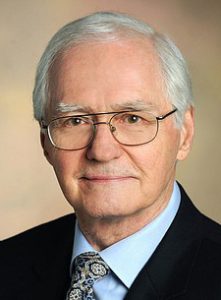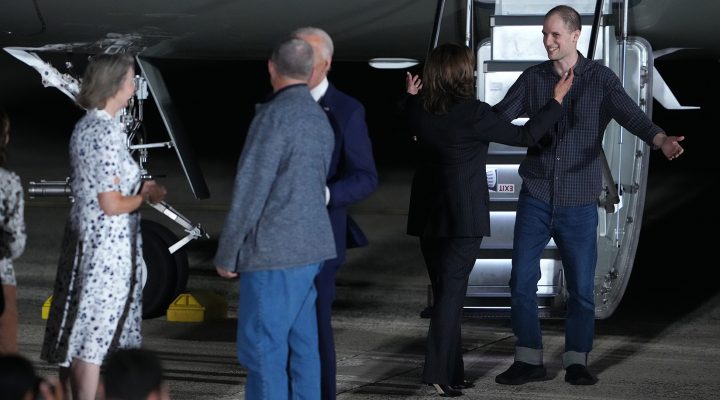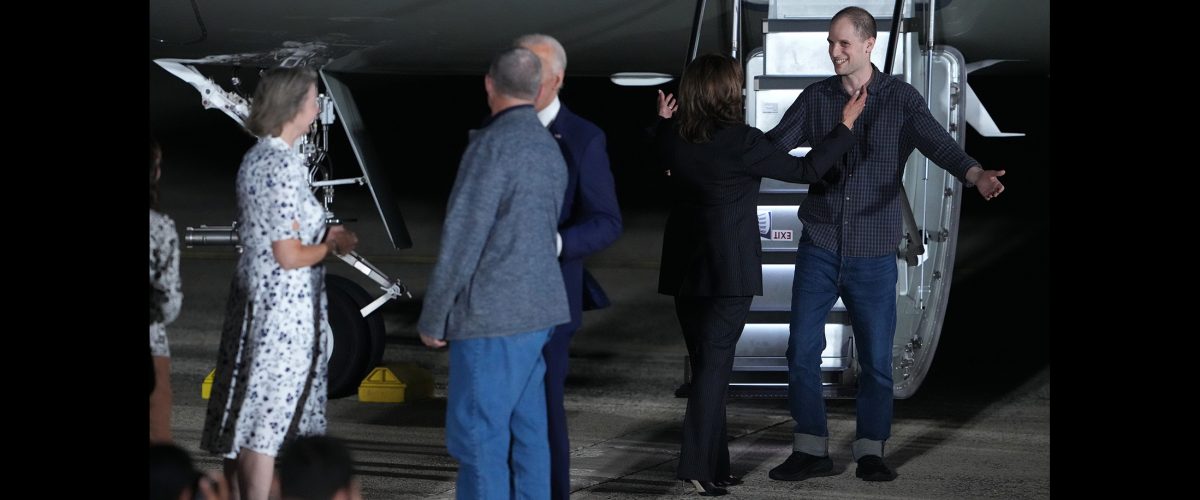Recently, my wife and I were glued to the TV, watching the return of the three U.S. citizens who had been falsely imprisoned in Russia. The hour was late, but we couldn’t pull ourselves away.
It was a truly rare event — but there it was, live at Joint Base Andrews, on the Southeastern edge of Washington, D.C. President Biden and Vice President Harris were there to receive the returnees and their families on behalf of their home country, the United States of America.

Richard Conville
We were surprised at the sudden turn of events and were overjoyed for the families of Paul Whelan, Evan Gershkovich and Alsu Kurmaswheva who were there to meet them. We saw them, as I hope you did, embraced by their families as they emerged from the plane, with broad smiles, exclamations of relief and tears of joy.
And we were filled with a renewed and robust patriotism at the victory of America’s ideals over the violence and cruelty of the Putin regime exemplified as it was by his most prized returnee, the hit man, Vadim Krasikov.
It was the largest prisoner swap in 30 years. Besides the three named above, there was the British-Russian activist, Vladimir Kara-Murza, an outspoken opponent of Russia’s invasion of Ukraine. In addition, Russia also released four German citizens and one Belarussian citizen, people who, like Gershkovich, apparently had been detained in Russia as mere bargaining chips.
Besides those nine, Russia also released seven of its own citizens who had been held as political prisoners. Historian Heather Cox Richardson observed that evening, “It is extraordinary that the U.S. government managed to force Putin to release his own citizens.”
President Biden took note of that extraordinary achievement when, standing there on the tarmac he declared, “It also says a lot about us that this deal included the release of Russian political prisoners. They stood up for democracy and human rights. Their own leaders threw them in prison. The United States helped secure their release as well. That’s who we are in the United States.”
That makes 16 citizens who were released by Russia. Russia got eight in return: Krasikov, who was being held in a German jail for murder; three Russians were released by the U.S.; two were released by Slovenia; and one each by Norway and Poland. Sixteen for eight. A pretty good deal! Putin must have really wanted the alleged hit man, Krasikov.
As appropriate, the Republican nominee for President, Donald Trump, also welcomed home the three U.S. citizens via his Truth Social platform. He did it in now vintage Trump style — by calling for release of the details of the agreement, by asking how many people the U.S. got as compared to the number Putin got (see above), and he criticized the Biden administration for always making bad deals.
Edith Olmstead reported that same night in The New Republic that “Donald Trump doesn’t seem to be the least bit happy about the release of three American citizens who were wrongfully imprisoned in Russia.” How true. Thank you, Donald, for showing your true colors: No matter the issue, it’s all about you, not about those citizens now safely at home with their families, not about the American ideals of freedom, democracy and the rule of law, not about love of country.
You had a chance, Donald, to back up all your words about how much you love this country; how much you love the people at your rallies; and how beautiful its flag is. Words, words, words. You had a chance to show your patriotism by your actions, and, well, you did, and your patriotism is hollow.
Your petty questions and accusations about this complex and courageous diplomatic agreement and the joyous homecoming of three American citizens demonstrate the depth of your patriotism. And you didn’t even mention their names!
Richard Conville is a retired professor of communication studies and a longtime resident of Hattiesburg, Miss. This column previously was published in The Pine Belt News, Hattiesburg.


